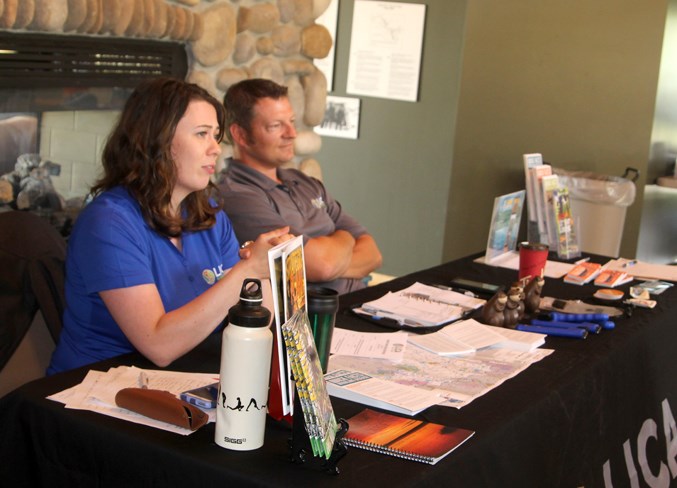Residents had the chance to learn about the invasive species living in local lakes.
The Lakeland Industry and Community Association (LICA) hosted an aquatic invasive species workshop to teach the public about what’s in their lakes.
LICA education outreach coordinator Erin Ritchie organized the event to educate community members on how to prevent the spread of invasive species, and show what’s harmful to the environment.
“We’re the ones most likely to spread the invasive species around,” Ritchie explained. “It’s important to educate people to prevent the spread, because we’re in control of the health of our watershed.”
The workshop was meant to show the types of species that affect lakes and how to report an invasive species.
Environmental technician with the County of Lac La Biche, Cynthia Elaschuk, was surprised to learn that they should be rinsing and drying their waders when they take samples from different lakes, and plans to implement a system in the future.
“We’ll just send one person in the water to use the same wader in each lake if we don’t get the chance to clean them off,” she said.
The event had speakers from the Government of Alberta, the Lakeland Agricultural Research Association (LARA), and a demonstration from the aquatic invasive species K-9 unit.
Tanya Rushcall is a aquatics invasive species biologist, and was one of the presenters at the event.
She said there aren’t many issues in the Bonnyville area, but she does get questions about crayfish.
“Crayfish are native to the Beaver River Watershed. Unfortunately they’re being found throughout the province,” detailed Rushcall.
The only way crayfish could be found in different areas is by people moving them, and Rushcall wanted to encourage families not to put species places where they don’t belong.
According to Rushcall, it’s illegal to release indigenous species into lakes in Alberta, and the Don’t Let it Loose campaign educates Albertans on species that shouldn’t be released.
“Don’t release your aquarium fish or your plants,” she stressed.
An example of aquarium fish causing problems are goldfish. People often flush them down the drain, and they don’t realize they can alter the habitat of a water body and spread disease to native species.
The Cold Lake boat inspection helps keep local lakes free of invasive species such as zebra and quagga mussels. The Fisheries Alberta Act was ammended to include a fine for anyone who doesn’t stop at the inspection station tget their boat inspected.
Rushcall explained that no boat is exempt from the law, and that anyone who doesn’t stop or refuses to have their boat examined will be fined $310.
Boaters legally have to pull the drain plug from their boats when its being transported on-land, and failing to to do so could result in a fine of $172.
Rushcall said, “It’s important to just follow those rules to avoid fines of any kind.”
If anyone believes they’ve spotted an invasive species in the area or have any questions, call the Government of Alberta’s aquatic invasive species hotline at 1-877-366-BOAT (2628).



